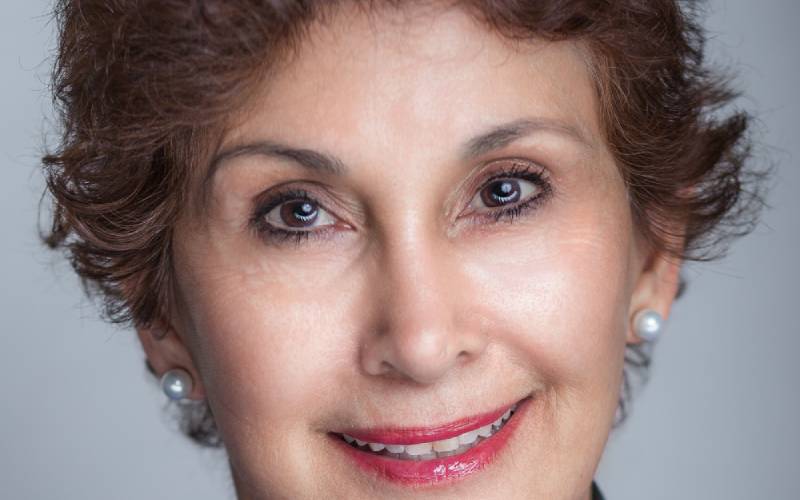“The genetic asymmetry [with sperm donorship] will create issues and complications – it puts a strain on the relationship, i.e. who is excluded; who has more rights to this product? In other words, if the sperm donor is from a stranger, the father feels ‘am I really adequately or sufficiently related that I could claim fatherhood’?”

Mali Mann, MD
San Francisco
Episode Description:
We begin by acknowledging the erroneous assumption that unconscious conflicts over becoming a parent are etiologic for what had been called ‘psychogenic infertility.’ Correlation is not causality. We review the widespread use of assisted reproductive technologies, with up to 750,000 babies born per year through these methods. Mali presents a composite case of a 48-year-old woman who went through many arduous IVF cycles before appreciating the degree of omnipotence and denial that characterized her approach to this problem, as it had toward many other issues in her life. She shares with us the common experience of infertility representing a sense of defectiveness and guilt. We consider the many challenges of sperm and egg donorship, including who one chooses as a donor as well as when one should tell children of their biological origins. We close with Mali sharing with us her recommendations to rejuvenate the field of child analysis.
Our Guest:
Mali Mann, M.D, is a Training and Supervising psychoanalyst and Child Supervisor at the San Francisco Center for Psychoanalysis. She is a clinical professor Adjunct at Stanford University School of Medicine, Department of Psychiatry and Behavioral Science. Some of her published papers include, “Immigrant Parents and their Emigrant Adolescents: The Tension of Inner and Outer Worlds;” “Shame Veiled and Unveiled,” “Aggression in Children: Origins, Manifestation, and Management through Play,” Adolescent Psychoanalysis book chapter. “The Formation and Development of Ethnic Identity.” Her edited book, Psychoanalytic Aspects of Assisted Reproductive Technology, won three awards: 1) Pinnacle Book Award, 2) International Book Awards in Family and “Parenting and Family” category in 2016, 3) Finalist for Book Vana Award in 2016. She has published two books of poetry: Whisper, Forget Me Not, and A Path with No Name. Her latest book, My Pony, Keran, is a semi-autobiographical children’s book. She has been a member of Flying Doctors for nearly three decades (Los Medicos Voladores). She and her late husband, Dr. William James Stover, traveled to the Orphanages in South America and Mexico to offer medical help to children and their families. In her spare time, she paints abstract expressionism and figurative; her art has been exhibited in US galleries and won several awards.
Recommended Readings:
Allison. G. H. (1997). Motherhood, motherliness, and psychogenic infertility. Psychoanalytic Quarterly, 66: 1-17
Ludden, J. (2011) A. F. (1961). A new openness for donor kids about their biology. NPR: Making Babies: 21st Century Families.(17 September).
Bibring, G. L.’ Dwyer, T. F., Huntington, D.S., & Valenstein, A. F. (1961). A Study of Psychological Process in pregnancy and the earliest mother and child relationship. Psychoanalytic Study of the Child, 16: 9-72
Ehrensaft, D. (2008), When baby makes three or four or more, Psychanal. Study Child, 63:3-23.
Freud, S. (1914). Remembering, repeating, and working through. (Further recommendations on the technique of psycho-analysis II.) S.E., 12.
Inderbitzin, L. B & Levy, S. (1998). Repetition Compulsion revisited: Implication for Technique, Psychoanalytic Quarterly. 67:32-53
Lester, E. P. & Notman, M. (1986). Pregnancy, developmental crisis, and object relations: Psychoanalytic considerations. Int. J. Psychoanal., 62: 357-366
Notman, M. & Lester, E. P. (1988). Pregnancy: theoretical considerations. Psychoanl. Inq., 8: 139-160
Pines, D. (1982). Relevance of early development to pregnancy and abortion. Int. J. Psychoanal., 61: 311-318
Zallusky, S. (1999). Infertility in The Age of Technology, Journal of American Psychoanalytic Association, 48: 1541-1562

Fascinating. Thank you.